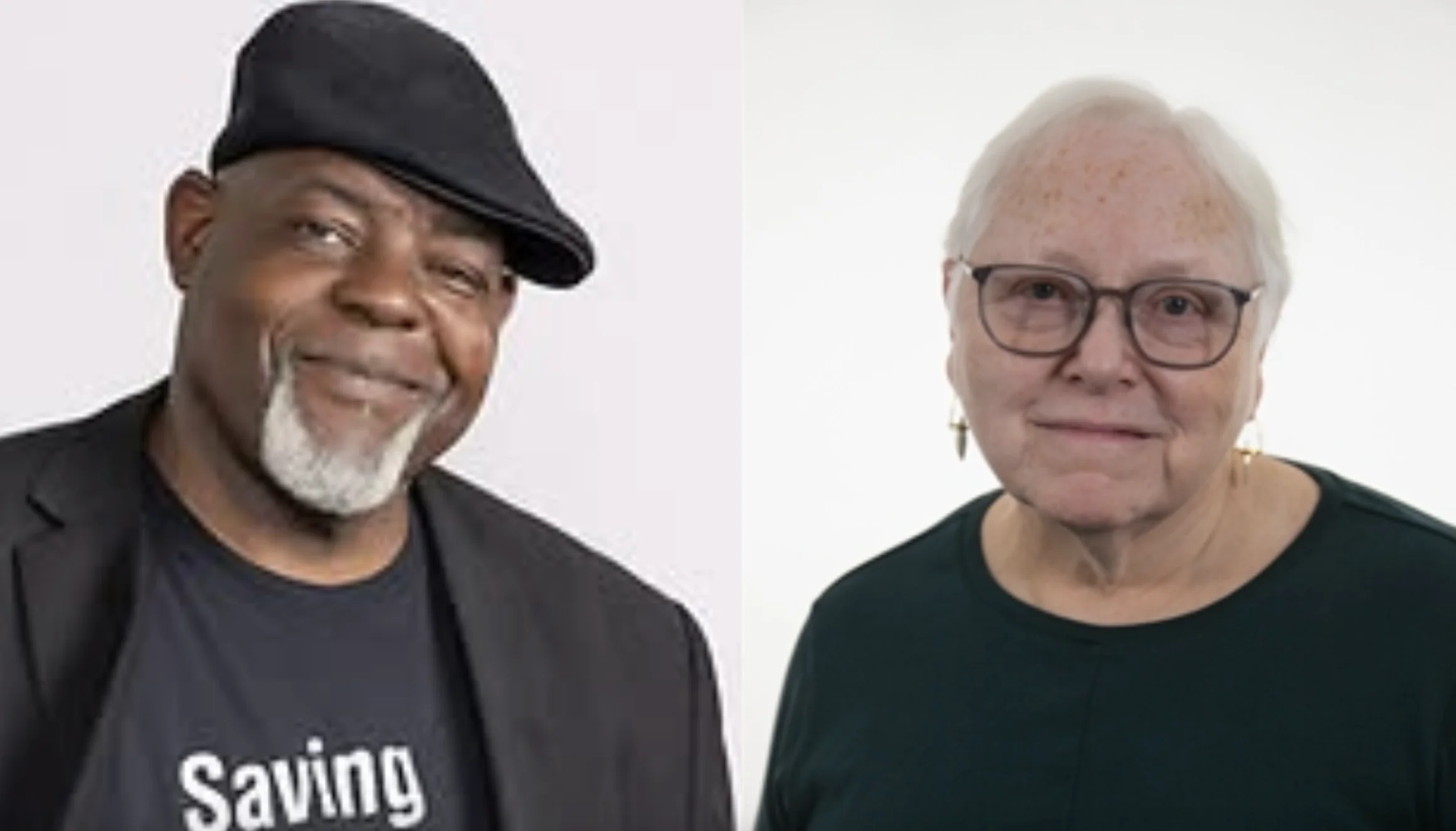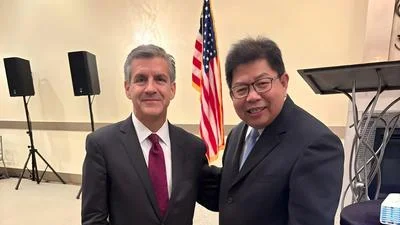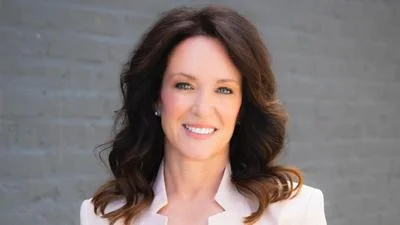Chicago Board of Education members Aaron "Jitu" Brown (left) and Debby Pope (right) face criticism for proposing tax hikes to fund CPS, which spends far more per student than parochial schools with weaker academic outcomes. | Facebook / Aaron "Jitu" Brown for Chicago School Board, District 5; Chicago Board of Education
Chicago Board of Education members Aaron "Jitu" Brown (left) and Debby Pope (right) face criticism for proposing tax hikes to fund CPS, which spends far more per student than parochial schools with weaker academic outcomes. | Facebook / Aaron "Jitu" Brown for Chicago School Board, District 5; Chicago Board of Education
Chicago Public Schools is calling for an emergency session of the Illinois General Assembly to override property tax caps, unlocking hundreds of millions in new revenue—a move that conservative critics are calling a political shakedown.
CPS argues it needs expanded taxing authority to close a projected $730 million budget deficit.
Despite spending over $29,000 per student annually, which is among the highest in the country, CPS continues to struggle with low proficiency rates, declining enrollment and cratering public trust.
Chicago School Board leadership, however, is calling on lawmakers in Springfield to lift state-imposed property tax caps in order to address the shortfall.
Illinois has the highest property tax rate in the U.S., burdening homeowners with steep taxes compounded by high income and sales taxes.
Board member Aaron “Jitu” Brown and Debby Pope, a retired Chicago Teachers Union staff member, recently advocated for an emergency session of the Illinois General Assembly to unlock new revenue sources, suggesting a millionaire’s tax, new service taxes and increased property taxes as necessary measures.
“We are committed to NO CUTS,” Brown said. “The days of balancing CPS' budget on the backs of Black and Brown children have ended.”
But DuPage County Republican Chair Kevin Coyne sees it very differently.
“CPS is already one of the most expensive, best funded, public school systems in America,” Coyne told DuPage Policy Journal. “They already receive a stunning amount of money. It’s not working. Student test scores are terrible. Kids are not showing up for school. Chronic safety issues exist. CPS is a complete failure and the answer to fixing it is not to dump more money into it.”
Coyne, like many other critics, argues the better path forward is school choice, not higher taxes.
“The path forward should be to allow disadvantaged families the option to send their kids to private schools,” he said. “Pritzker and the Democrats shuddering the Invest in Kids programs was obscene. If CPS can’t afford to teach the kids they have, moving more kids to private schools would be a win for all involved. Let’s start putting the future of our children above money and political games.”
The Invest in Kids Scholarship Fund was a state-run tax credit program that allowed donors to fund private school scholarships for low-income families in exchange for a 75% tax credit.
Created in 2017, the program provided scholarships to over 9,000 disadvantaged Illinois students before it was eliminated by Democrat lawmakers in 2023. Its cancellation forced many families to return to struggling public schools or search for limited alternatives.
Notably, the mostly Catholic schools attended by Invest in Kids students cost an average of only $8,000 per pupil, which is far less than the $29,000 per student spent by Chicago Public Schools, while delivering significantly better educational outcomes.
In 2025, Illinois House Republicans renewed their push to restore Invest in Kids arguing that expanded access to quality education helped low-income students thrive in private or alternative schools.
Kristina McCloy, founder of Concerned Parents of Illinois, echoed Coyne’s frustration.
“Chicago Public Schools already spends nearly $30,000 per student, and yet three out of four kids can’t read or do math at grade level,” McCloy told the DuPage Policy Journal. “That’s not a funding problem. That’s a complete failure of leadership, broken priorities, and radical ideology getting in the way of real education.”
“CPS doesn’t need another dime,” McCloy said. “Not one more cent. Until they show taxpayers real academic results and fiscal discipline, they should be cut off. Illinois families are already being crushed by taxes. The solution isn’t squeezing homeowners harder, it’s slashing waste, reining in corrupt pensions, and putting American children—not union bosses—first.”
Citing what she sees as political overreach, McCloy also took aim at CPS’s move to repeal the Property Tax Extension Limitation Law (PTELL), which currently restricts tax increases without voter approval.
“Now CPS wants to blow up the property tax cap law, a reckless move that opens the floodgates to endless tax hikes with zero accountability,” she said. “This isn’t about kids. This is about protecting a broken system controlled by the far-left Chicago Teachers Union and rubber-stamped by Brandon Johnson, a mayor elected by socialist money and militant union power.”
She also pointed to the burden imposed by the migrant crisis and what she called the federal government’s failed border policies.
“Let’s call it what it is: CPS has already flooded its classrooms with thousands of illegal migrants, pouring in from Joe Biden’s open border, and Illinois taxpayers are footing the bill,” McCloy said. “It’s not charity. It’s theft. They’re stealing from American children to bankroll illegal immigrants, all to rig future elections with your tax dollars.”
Margot Henshaw, a DuPage business owner who runs Glen Ellyn-based The Prince’s Table and Liberty Luxury, says the CPS proposal is a symptom of broader dysfunction in Illinois’ education bureaucracy and in local government’s attitude toward taxpayers.
“CPS's current funding level is obscene,” Henshaw told the DuPage Policy Journal. “Though I live in DuPage, studying one's property tax bill will reveal that 75% of the tax bill goes to the schools. For starters, every school district in Illinois should be taking a hard look at compensation bestowed upon superintendents, principals, social workers, high school counselors, as well as the necessity of the position. But in Chicago, taking a hard look goes double due to the poor results $29,000 per year is buying.”
She argued that not only are Chicago schools failing students, but their inefficiencies and overbuilt infrastructure create additional, unnecessary costs.
Henshaw, like others, supports implementing a school voucher system and dramatically reducing property tax burdens.
“Now is the time for school vouchers so parents can vote with their educational dollars for parochial or private schools where they can be assured the curriculum does not include discussion of libido or human sexuality or changing one's gender,” she said. “The three R's -reading writing and arithmetic - solid preparation for a life of learning—with a healthy dose of true American history—because we are an extraordinary country.”






 Alerts Sign-up
Alerts Sign-up